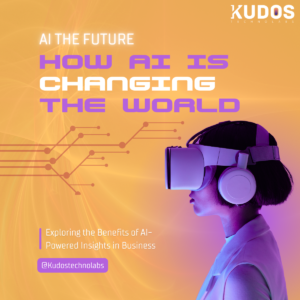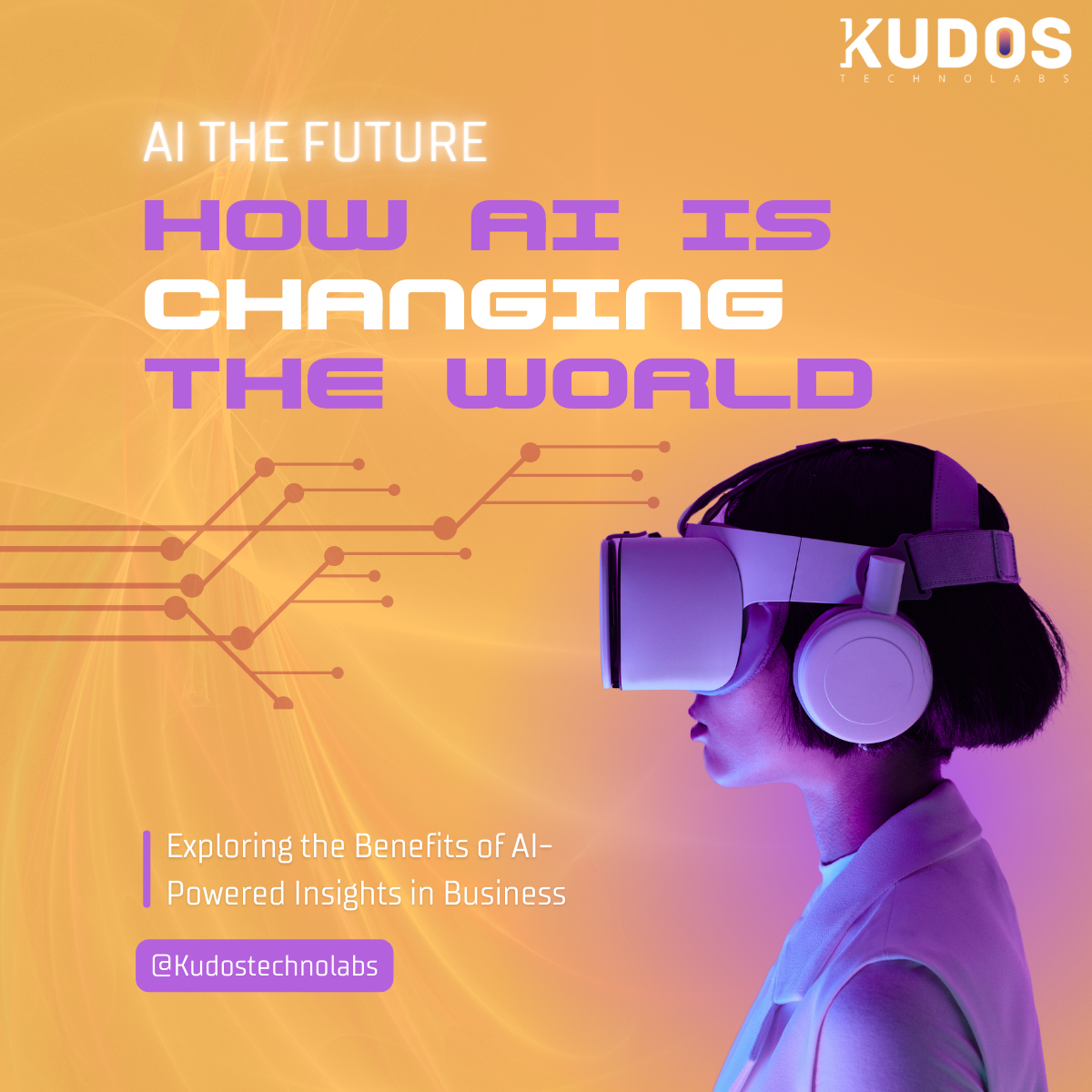Transformative power of Artificial Intelligence (AI) has emerged as a game-changing technology that is revolutionizing various sectors and transforming the world as we know it. With its ability to process vast amounts of data, learn from patterns, and make informed decisions, AI is reshaping industries, improving efficiency, and unlocking new possibilities across multiple domains. here kudos technolabs understand will understand you about every sector.

Enhancing Healthcare: AI is transforming the healthcare industry by improving diagnosis, treatment, and patient care. Machine learning algorithms can analyse medical data to detect patterns and predict diseases with greater accuracy. AI-powered robots are assisting in surgeries, reducing errors, and enhancing precision. Additionally, AI-based virtual assistants are streamlining administrative tasks, enabling healthcare professionals to focus more on patient care.
Revolutionising Transportation: AI is revolutionising transportation through self-driving cars and intelligent traffic management systems. Autonomous vehicles equipped with AI algorithms can analyse the environment, make real-time decisions, and navigate safely. This technology has the potential to reduce accidents, enhance traffic flow, and improve overall transportation efficiency. Moreover, AI-powered logistics and route optimization systems are optimising supply chains, reducing costs, and enhancing delivery networks.
Empowering Education: AI is transforming education by personalising the learning experience, adapting to individual needs, and enabling access to quality education for all. Intelligent tutoring systems leverage AI to provide tailored guidance and feedback to students. AI-powered language translation tools are breaking down language barriers, facilitating global collaboration. Furthermore, AI-based analytics can analyse vast amounts of educational data to identify trends, improve curriculum design, and enhance teaching methodologies.
Revolutionising Finance: AI is revolutionising the finance industry by automating tasks, improving risk assessment, and enhancing customer experience. Robo-advisors powered by AI algorithms can provide personalised investment advice, helping individuals make informed financial decisions. AI-based fraud detection systems analyse patterns in real-time, mitigating financial risks. Chatbots and virtual assistants are also transforming customer service by providing quick, efficient, and personalised support.
Advancing Manufacturing: AI is advancing manufacturing by enabling predictive maintenance, optimizing production processes, and enhancing quality control. AI algorithms analyse sensor data to detect anomalies and predict machine failures, minimising downtime. Smart factories leverage AI to optimise production schedules, reduce waste, and improve efficiency. AI-powered quality control systems can identify defects and anomalies with greater accuracy, reducing product recalls and improving overall product quality.
Transforming Communication: AI is transforming communication by enabling natural language processing, speech recognition, and translation. Voice assistants like Siri, Alexa, and Google Assistant have become integral parts of our daily lives, providing instant information and assistance. AI-based language translation tools are bridging language barriers, fostering global communication and collaboration. Furthermore, AI-powered sentiment analysis is helping organizations understand customer feedback and adapt their communication strategies accordingly.
Conclusion:
Artificial Intelligence is driving significant changes across various sectors, revolutionizing healthcare, transportation, education, finance, manufacturing, and communication. By leveraging AI technologies, industries are becoming more efficient, productive, and customer-centric. As AI continues to evolve and advance, its transformative power is expected to reshape even more aspects of our lives, leading to a future where AI-driven innovations and solutions become ubiquitous, solving complex problems and improving the overall human experience. However, ethical considerations and responsible deployment of AI will be crucial to ensure its benefits are harnessed while addressing potential challenges and concerns.

